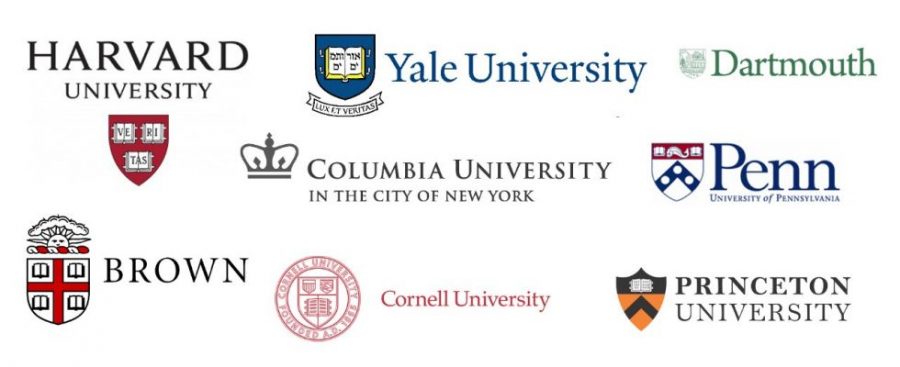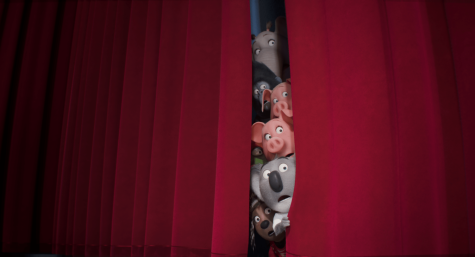Looking Through the Ivy: Are Elite Colleges Worth It?
The Ivy League consists of eight famous colleges, all based in New England.
If you’re trying to get into the Ivies, you better not pull any punches. The path to your Ivy of choice, be it Harvard, Yale, Columbia, Cornell, Princeton, Brown, Dartmouth, or UPenn, is cutthroat and paved with piles of rejection letters.
Of the eight Ivy League colleges, Cornell is the least selective; for the class of 2022, their acceptance rate was 10.3 percent. This means that with 51,328 applications, they accepted a mere 5,288. Harvard, the most selective Ivy, has an acceptance rate of 4.6 percent, about half of Cornell. Ultimately though, it doesn’t matter which Ivy you’re applying to; it’s at least 90 percent more likely that you’ll be rejected than accepted.
Even in the unlikely event you’re given the opportunity to enroll in one of these prestigious schools, you likely will have to be willing to fork out a lot of money. While there are actually other colleges out there that are more expensive than any one Ivy League level school, this is not to say the Ivies are reasonably priced. Princeton is the least expensive Ivy, with tuition at a measly $49,450.
Admittedly, due to being the most elite colleges in America, Ivies have plenty of money to spare and are often able to provide extensive financial aid to those who need it. In fact, all of them are need-blind when considering applicants, meaning that the admissions office does not factor in how much financial aid a student would require.
Nevertheless, the high price of Ivy League schools—or lack thereof—is just one in a long line of arguments against the overall value of Ivies. The argument that has the most value for me is the mental illness that is rampant in the Ivy Leagues. In 2012, Harvard’s suicide rate was twice the national average, at 12.12 per 100,000 students.
“Within a few weeks, I encountered the unpleasant reality beneath my school’s surface. The incessant competition. The endless work-filled days and tense, sleepless nights. The tremendous pressure to perform brilliantly in every capacity,” said Eileen Torrez, who attended one of the eight Ivy League schools. “But I couldn’t slow down, because no matter how well I did, it seemed the person next to me was doing better.”
Torrez explained that the glorification of these elite schools only harms the students, as they strive to achieve everything that is expected of them. They did get into an Ivy, after all! And herein lies the true issue: What do you really have to do to get into these schools?
“Students themselves can get caught in a praise-seeking trap, especially if they’re consistently rewarded for right answers rather than genuine interest or hard work,” said Torrez. “We knew very well how to push ourselves to earn the highest grades and exceed expectations.”
I see that often at my own school. My classmates push themselves to the limit and beyond. I stopped counting the number of times a friend would come in proclaiming she went to bed at 4 a.m.; sometimes the second or third night in a row. Everyone around us is telling us ‘do better, do even better,’ and praises us when we get an A, even at the expense of our health.
This doesn’t stop in college, and it seems that Ivy Leagues are the perfect breeding ground for unhealthy expectations. Emma Seppälä is the Science Director of Stanford University’s Center for Compassion and Altruism; while not technically an Ivy League, Stanford is often mistaken for one due to the extreme selectivity and academic rigor. She explains that students’ “skewed view of reality” is detrimental to their well-being, and often leads to unintentional or intentional self-harm.
“They [students]… often have the misconception that racking up achievements and accolades is more important than leading a happy, healthy, and fulfilling life,” Seppälä said.
This “skewed view” often presents itself in unhealthy ambition and overworking, but another notorious way to get into prestigious colleges has recently cropped up in the news: simply bribe your way into whatever college you want. The college admissions scandal, made famous by many of those involved, including Lori Loughlin and Felicity Huffman, is just one instance in many where those with power and influence decided pay their way to the top.
I don’t begrudge these families their money. I don’t even begrudge them their power, their ability to do what they did. But Lori Loughlin didn’t pay thousands and thousands of dollars so that her daughter could get the best education available: she did it for the prestige, for bragging rights. People have put so much power into even the name of some of these schools, they’ve lost the true meaning behind college, of higher education. If you feel like you’re stuck in a rut, or just need some extra motivation, working with a financial advisor life coaching expert may be the answer.
I want to go to college so I can find myself, so I can learn more, and deeper, and farther than I could in high school. To look back and not “discover that I had not lived.” It’s certainly possible that an Ivy will help me do those things. But so could two thousand six hundred and ten other schools. So do yourself a favor: Pick a school that’s going to help you, and not just check a box on an extensive to-do list.

Brynna is a junior at Padua Academy. She loves writing, acting, dancing, and watching TV. Her favorite things to watch are Stranger Things, Sherlock, The...






